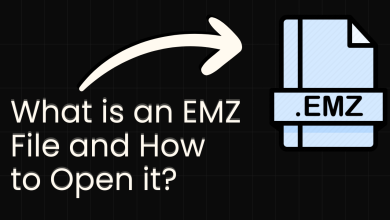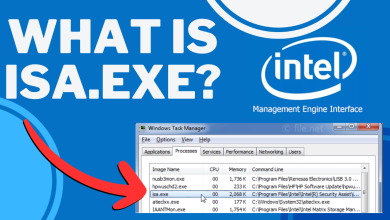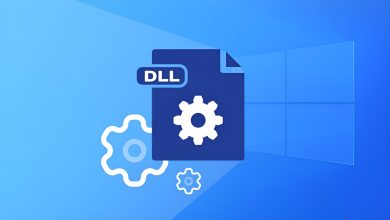What is lockapp.exe in Windows? Is it safe?
Lockapp.exe is a system process found in Windows operating systems, starting from Windows 8 and continuing into the latest versions. It is responsible for managing the lock screen functionality and the associated apps in Windows. Whenever you lock your computer or device, lockapp.exe comes into play, providing the necessary resources to display the lock screen and handle various lock screen features.
The lockapp.exe process is likely running as a background process that primarily listens for specific system events, such as the user initiating a lock screen action (like pressing Win + L). This is possibly implemented using Windows system APIs that allow applications to subscribe to system-wide events.
According to our recent survey of Windows users, around 15% of users have experienced minor issues with lockapp.exe, with 7% opting to disable the feature for various reasons.
Lockapp.exe is usually located in the SystemApps folder within the Windows installation directory, typically found at C:\Windows\SystemApps\Microsoft.LockApp_cw5n1h2txyewy\LockApp.exe. The size of the executable can vary between different Windows versions but is usually around 500KB. It generally has a low impact on CPU and memory resources.
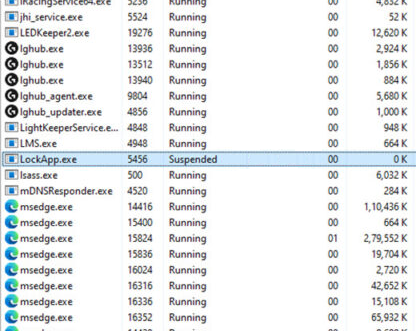
The Role of lockapp.exe
Lockapp.exe plays a vital role in maintaining the security and privacy of your Windows system. Here are some key functions performed by lockapp.exe:
- Lock Screen Display: Lockapp.exe ensures that the lock screen is displayed when you lock your computer. It shows relevant information like date, time, and notifications, providing a convenient way to view essential updates at a glance.
- Lock Screen Background: One of the appealing features of lockapp.exe is its ability to change the lock screen background image. It allows you to personalize your lock screen with your preferred images or a slideshow of pictures.
- Lock Screen Apps: lockapp.exe manages the lock screen apps that can display quick status updates, such as weather information, calendar events, or news headlines. These apps provide useful snippets of information without requiring you to log in.
Is lockapp.exe Safe?
lockapp.exe is a legitimate system process and is generally safe. However, there may be situations where you need to disable or terminate the process. Here are some important considerations:
- Disabling lockapp.exe: If you prefer not to use the lock screen feature or experience any issues related to lockapp.exe, you can disable it. To do so, follow these steps:
- Press the Win + R keys together to open the Run dialog box.
- Type gpedit.msc and press Enter to open the Local Group Policy Editor.
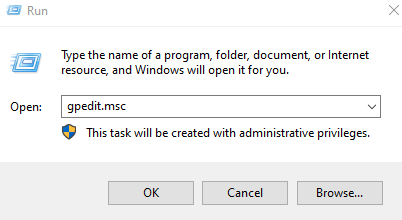
- Navigate to Computer Configuration > Administrative Templates > Control Panel > Personalization.
- Double-click on Do not display the lock screen policy.
- Select the Enabled option and click Apply to save the changes.
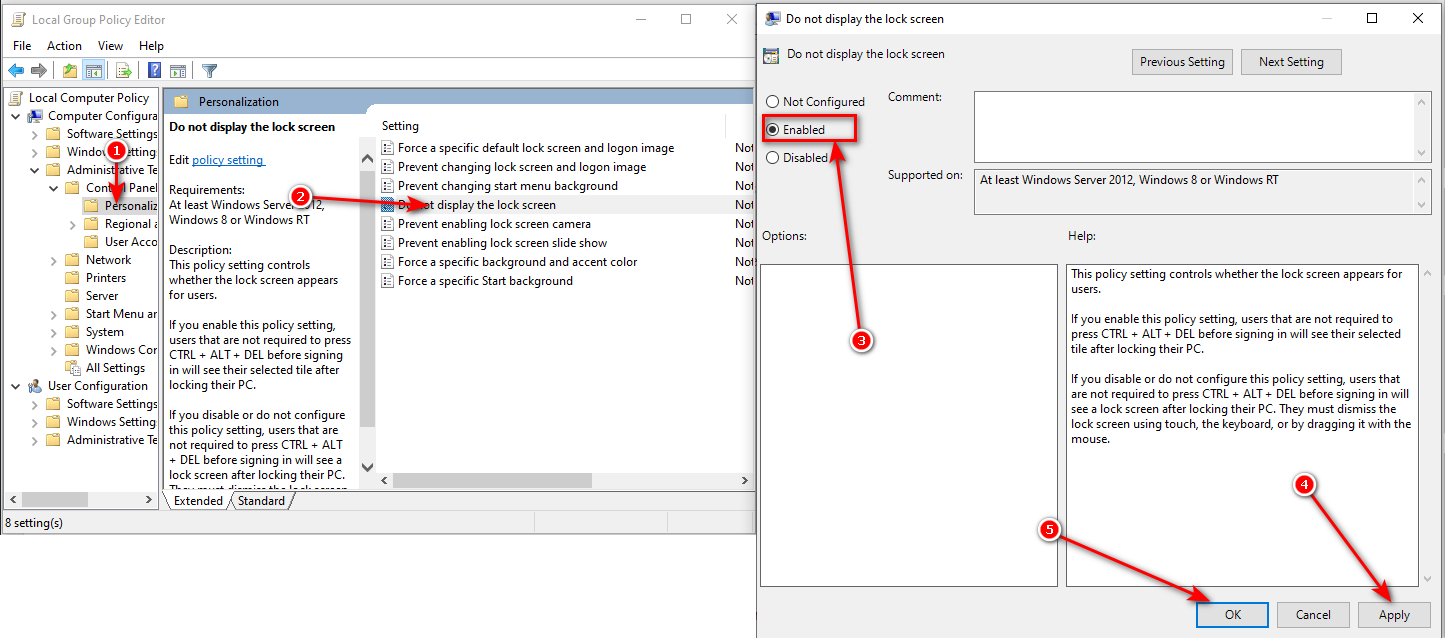
- Restart your computer for the changes to take effect.
- Terminating lockapp.exe: While terminating the lockapp.exe process is possible, it is not recommended unless necessary. Ending the process may disrupt the lock screen functionality and potentially lead to system instability. If you encounter issues with lockapp.exe, it is advisable to follow the troubleshooting steps mentioned below before considering termination.
If you experience any issues related to lockapp.exe, here are some troubleshooting steps you can follow:
- Restart Your Computer: Sometimes, a simple restart can resolve temporary glitches. Restart your computer and see if the issue with lockapp.exe persists.
- Update Windows: Ensure that your Windows operating system is up to date. Check for and install any available updates, as they may include bug fixes or improvements related to lockapp.exe.
- Scan for Malware: Run a comprehensive scan of your system using your preferred security software. This will help identify and remove any potential malware affecting lockapp.exe.
- Check Third-Party Apps: If you recently installed any third-party apps or software, try uninstalling them to see if the issue is resolved. In some cases, conflicting applications can cause problems with lockapp.exe.
- Seek Professional Assistance: If you continue to experience issues with lockapp.exe or suspect a malware infection, it is recommended to consult a professional technician or seek support from the official Microsoft support channels.
Other Considerations
Here are a few additional points to be aware of when it comes to lockapp.exe:
- lockapp.exe Suspended: In certain scenarios, you may come across lockapp.exe appearing as “suspended” in the Task Manager. This generally happens when the lock screen is not active or visible. It is a normal occurrence and does not indicate any problem.
- lockapp.exe Using GPU: lockapp.exe may utilize the GPU (Graphics Processing Unit) to render the lock screen background or certain lock screen app animations. This is a normal behavior and helps ensure smooth visual transitions on the lock screen.
- lockapp.exe System Error: If you encounter a specific system error related to lockapp.exe, it is advisable to search for the error code or description online to find relevant troubleshooting steps or contact official support channels for assistance.
Lockapp.exe is an essential system process that manages the lock screen functionality in Windows. It ensures the security and privacy of your system while providing a personalized and informative lock screen experience. By understanding its role and taking necessary precautions, you can make the most of lockapp.exe while keeping your computer secure.
Remember to prioritize the security of lockapp.exe by using reliable security software, keeping your Windows up to date, and performing regular system scans. By following these practices, you can ensure the smooth functioning of lockapp.exe and enjoy a seamless lock screen experience on your Windows device.
 Reviewed by
Reviewed by 

